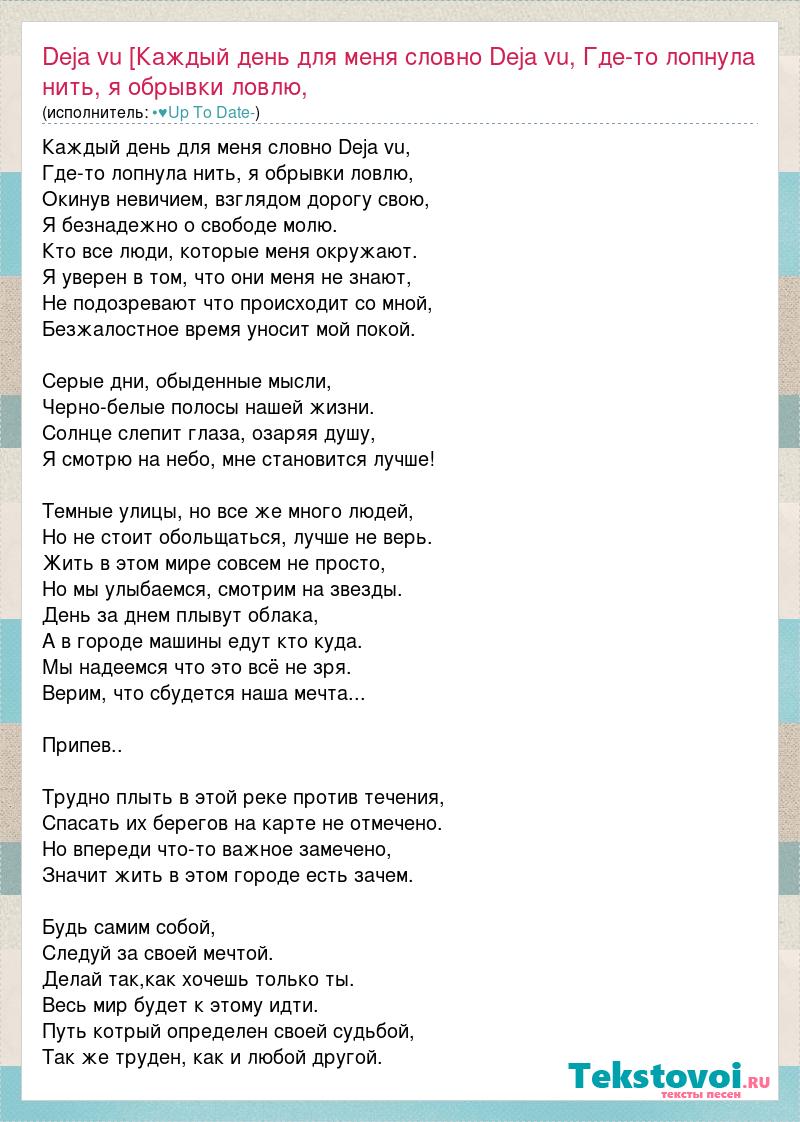

The writer described multiple locations on the island where he felt déjà vu. In August 1979 the Boston Globe published a nostalgia-infused article about Mackinac Island. If we have another snow storm, it’ll be deja vu all over again. So don’t expect any better service from those a great many of us depend on for transportation. In March 1979 the Chicago Metro News used an instance of the expression while discussing the possibility of disrupted transportation networks in Chicago, Illinois: 1979 July 28, Chicago Metro News, Blacks Must ‘Keep the Faith, Baby’, Quote, Column 3, Chicago, Illinois. Once again the important NCAA tournament would not include teams from the conference: 1974 March 11, Dallas Morning News, “Deja Vu, Again” by John Anders, Page B3, Column 1, Dallas, Texas.

In 1974 the Dallas Morning News used the title “Deja Vu, Again” for an article by a sports columnist who was unhappy with the performance of Southwest Conference basketball teams. Here are additional selected citations in chronological order. Shapiro, Section Yogi Berra, Quote, Yale University Press, New Haven. 2006, The Yale Book of Quotations by Fred R. This is the earliest known citation for the most common modern version of the saying, and it is listed in the Yale Book of Quotations. It’s déjà vu all over again-the usual gaggle of gimmicks, and the familiar covey of quail that frequently makes the put-on more of a take-off. The reviewer was not impressed by the fancy gizmos and the provocative women featured on screen: 1966 February 22, Chicago Tribune, Gimmicks Jam ‘The Silencers’ by Clifford Terry, Page B5, Chicago, Illinois. The singer and comedian Dean Martin starred in a vehicle called “The Silencers” which spoofed the secret-super-spy genre popularized by James Bond extravaganzas.
#DEJA VU SONG 2013 MOVIE#
The more elaborate statement: “It’s déjà vu all over again” appeared in a movie review in the Chicago Tribune in 1966. Semantically, he could have said “It’s Déjà vu”, but the longer phrase fit the rhythm and rhyme scheme. The jocular tone suggests to QI that the author knew the phrase was pleonastic. The poem was composed of six verses, and these were the first two: 1962 September 22, Evening Independent, People to People: Poem: “Thanks To You” by Jim Prior of South Pasadena, B (GN ), St. A humorous love poem titled “Thanks To You” by Jim Prior used the expression in the first line of the first verse.

The earliest evidence located by QI was printed in a Florida newspaper in 1962. The details for these citations are given further below. Of course, it is unfair to demand from a person perfect memory for all utterances. However, by 1998 Berra had embraced the quotation, and he presented a scenario circa 1961 in which he made the remark during a baseball game. In 1987 the New York Times language columnist William Safire spoke to Berra by phone, and Berra denied that the phrase was his. Quote Investigator: Analysis of this quotation is complicated by the conflicting testimony provided by Yogi Berra. I have been unable to find a solid citation ascribing this sentence to Yogi, and I know some Yogiisms are misquotations. The second is usually attributed to Yogi: Here are two humorously redundant or exaggerated phrases containing “déjà vu”.

Yogi Berra is famous for his magnificent baseball skills and for his comical statements known as Yogiisms. The term déjà vu can also be used to simply reference an event or circumstance that has happened many times before. This feeling is often illusory because the event being experienced is genuinely novel. Yogi Berra? Jim Prior? Clifford Terry? John Anders? Tish Baldrige? Anonymous? Apocryphal?ĭear Quote Investigator: Déjà vu is the eerie and intense sensation that something you are experiencing has happened before.


 0 kommentar(er)
0 kommentar(er)
